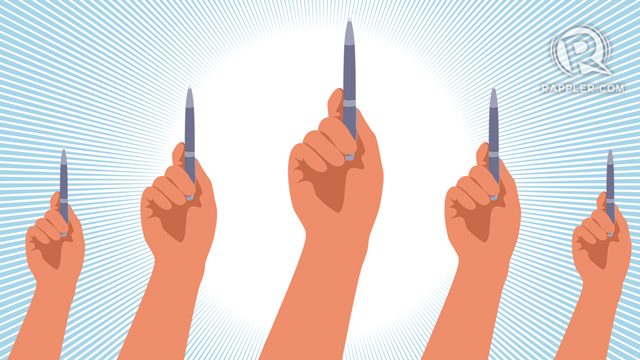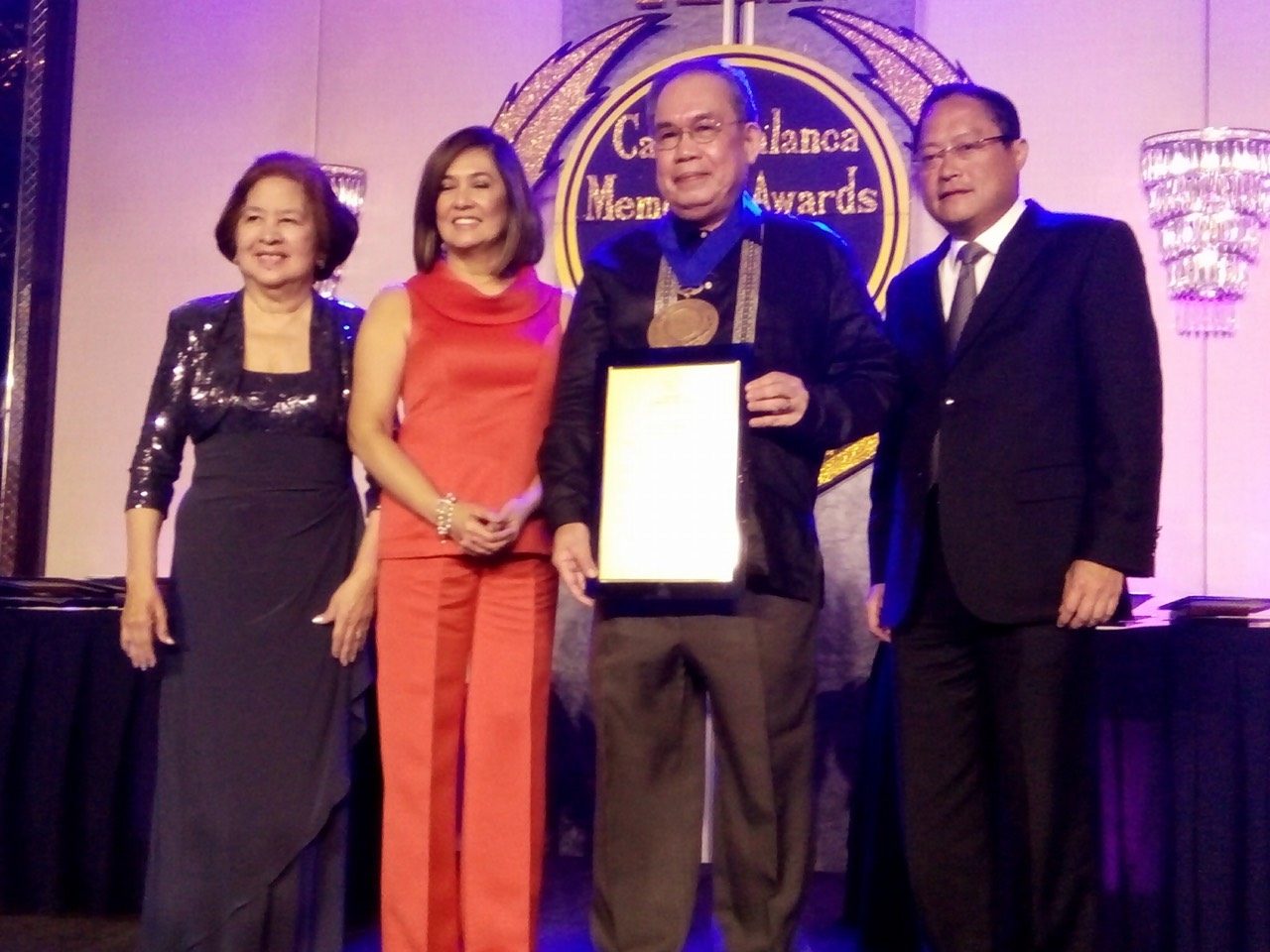SUMMARY
This is AI generated summarization, which may have errors. For context, always refer to the full article.

MANILA, Philippines – Winners of the 67th Carlos Palanca Memorial Awards for Literature may have “entered the Rigodon Ballroom with an extra spring in their step, and a sparkle in their eyes, with their parents or partners in tow,” Dr Jose Y. Dalisay Jr said in his speech titled, What This Prize Should Mean to You. He was addressing winners of the award, including the grand winners of the bi-annual novel and nobela categories, and 23 first-time winners.
Dalisay himself has won 16 Palanca awards in 5 genres, and had entered the Palanca Hall of Fame in 2000. He was also the recipient on Friday, September 1, of the Gawad Dangal ng Lahi, Palanca’s special honorary award.
“A Palanca award will bring you honor, some fame – certainly bragging rights for your proud mama and papa – and even some money, if not for a car then for a weekend in Boracay or a new phone or laptop to replace the old one. You will be walking on air for a couple of weeks, until the novelty wears off, the money is spent, and you return to the humdrum of teaching, call-centering, Uber-driving, or whatever it is keeps you and your family alive,” he said.

Butch, as he is fondly called by friends and avid readers of his Penman column at the Philippine Star reminisced about the first time he won: “You will never forget this evening, as I have never forgotten my own introduction to this very special society of peers and comrades.”
He likened winning a prize the first time he joined to “heaven, nirvana, and Camelot all rolled into one”, and treasured the certificate he received the way he did a college diploma (he even had it framed)!
And with his savings and thousands of pesos from his prize money, he bought his first car: a canary-yellow 1963 Datsun Bluebird. He added, however, that “You will discover that, to most people, your literary genius makes no difference and no sense. You will begin to wonder, as I did, if it was all a fleeting illusion.”
After losing year after year within the next 4 years following his first win, he said that he had to fight back the growing fear that his first Palanca “was a joke”. He kept at it though, reaching the point when “the winning mattered less than the writing.”
“That will be your greatest victory, the realization that these awards are but an enabler, a handmaiden of books that will be validated no longer by a panel of 3 judges, but by a readership of thousands,” he said.
Dalisay won again after a drought of 4 years. Within 20 years, he became part of the Palanca Hall of Fame – he had published 10 books, gone back to college (completing his master’s and PhD all in one go), and begun another career as a college professor.
“I never joined the Palancas again, except to be an occasional judge, but I have come to these awarding ceremonies as often as I could, eager to witness the annual emergence of new literary talent,” he said.
So what did Dalisay do in-between joining the Palanca Awards?
He doesn’t consider himself a literary genius. This jack-of-all-trades has always introduced himself as “a Swiss Army Knife of writing, a practitioner and professional who has made a living of his words.”
“I was already working as a newspaper reporter at 18, before I won my first Palanca; I was a journalist beholden to the facts before I was liberated by fiction,” he said.
Dalisay has written speeches for 5 presidents, several senators and CEOs, and “biographies of such diverse figures as Communist guerrillas, capitalist icons, and Marcos cronies.”
“At any given time, I’m working on 3 or 4 book projects. I teach, write a weekly column, and peck away at stories, essays, poems, my third novel, and my unfinished oral history of the First Quarter Storm. And, oh, I also get to dress up and play the part of an academic bureaucrat,” he said. He is the Vice President for Public Affairs of the University of the Philippines system.
As a professional, Dalisay said he does every job he accepts as if it were his first, last and only job; no matter how big or small it is. He designed and has been teaching Professional Writing in the past two decades. Every semester opening he admonishes his students: “There’s writing that you do for yourself, and writing that you do for others. And don’t ever get those two mixed up, or you’ll come to grief.”
He reminded the winners that if and when the situation calls for it, they should learn to say “no”.
Looking back, he said, “You remind me of that 21-year-old who, even as he had to write speeches, scripts, and stories for others, burned with the desire to write for himself and for his people at large – as this 63-year-old still does – awaiting blessed retirement 16 months hence so I can write the best of what remains in me to write.” And while “the generous cash awards are nothing to sneeze at; the Palancas have always been about more than money.”
“Your certificate tells you, this is how good you are; you look around you and you realize, that is how much better you can be,” he said.
“Writing for the truth, writing for honor and glory, writing for the love of language – these are what your being here is all about, what the Palancas have existed for these past 67 years,” he said.
Quoting a speech he once wrote for former president Fidel V. Ramos, he said, “It is both literature’s virtue and responsibility to reaffirm our fundamental humanity, and the unity of our interests and aspirations as a people. Every act of writing rehumanizes us, both writer and reader,” he said.
He added, “This is especially important in these darkening times, when megalomaniacal and murderous despotism threatens societies across the ocean, debases the truth, and cheapens human life.”
“If you write for truth, reason, and justice, and for the beauty and value of life itself, you will always be a first-prize winner in my book,” he said.
And with the proliferation of fake news in our times, Dalisay said, “The best antidote to fake news is true fiction.” – Rappler.com
Susan Claire Agbayani is a freelance writer who contributes to newspapers, magazine, and websites. She is finishing her thesis, an unauthorized biography of a Filipino band, for her MFA in Creative Writing at De La Salle University. She lives in Quezon City with her son Gide and their cats.
Add a comment
How does this make you feel?
There are no comments yet. Add your comment to start the conversation.